From Assessment to Action: How Ethical AI Can Truly Help People in Rwanda
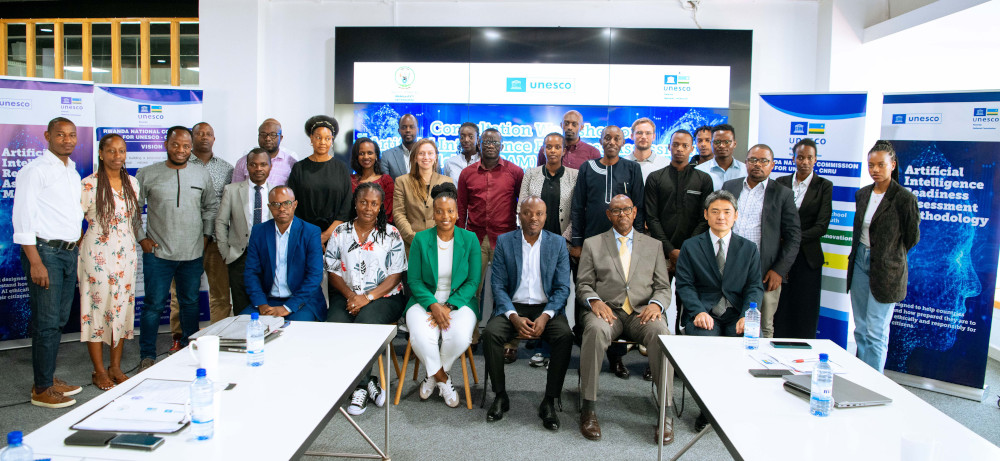
Rwanda is stepping into the world of artificial intelligence, but not in the way you might expect. Here, the story isn’t just about building smart machines or chasing the latest tech trends. It’s about people. It’s about asking: How can AI actually make life better for everyone, not just a few?
This thoughtful, people-first approach came into sharper focus when Rwanda partnered with UNESCO to carry out an AI Readiness Assessment using the global RAM (Readiness Assessment Methodology) framework. Think of it as Rwanda giving itself an honest health check, not just on infrastructure, but on values too.
Claude Migisha, a digital development expert from Research ICT Africa who led the RAM process, puts it plainly:
“Rwanda’s AI development journey is strongly government-led. Moving forward, it will need to involve various actors, including the private sector, academia, and civil society. Otherwise, uptake and awareness of emerging technologies, such as AI, will remain low. The government must ensure voices from all these actors are heard as part of efforts to leverage AI as an engine for socio-economic development.”
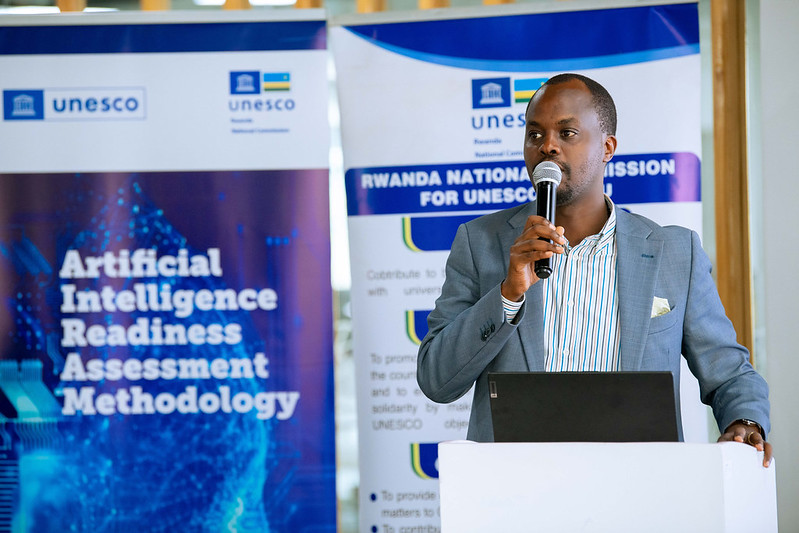
Clearly, the country has made big strides, but a lot still needs to be done to ensure AI benefits all.
Dr. Rene Kabalisa, a technology innovation expert with a focus on artificial intelligence, smart cities, and innovation ecosystems, and former lead on emerging tech initiatives at RISA, brings it back to the people at the center of it all.
“Rwanda’s approach to AI must be rooted in human-centered design and pro-poor innovation. It’s not enough for AI to enhance government efficiency or automate services – we need to ensure it translates into improved lives.” He says.
“That means using AI to solve local challenges in agriculture, healthcare, education, and public service delivery. One example is leveraging AI for early diagnosis in remote health centers or forecasting crop diseases to support smallholder farmers. Ensuring that policies, data governance frameworks, and AI solutions are developed with community input and tested in real-world environments is key to achieving impact beyond systems.”, he adds.
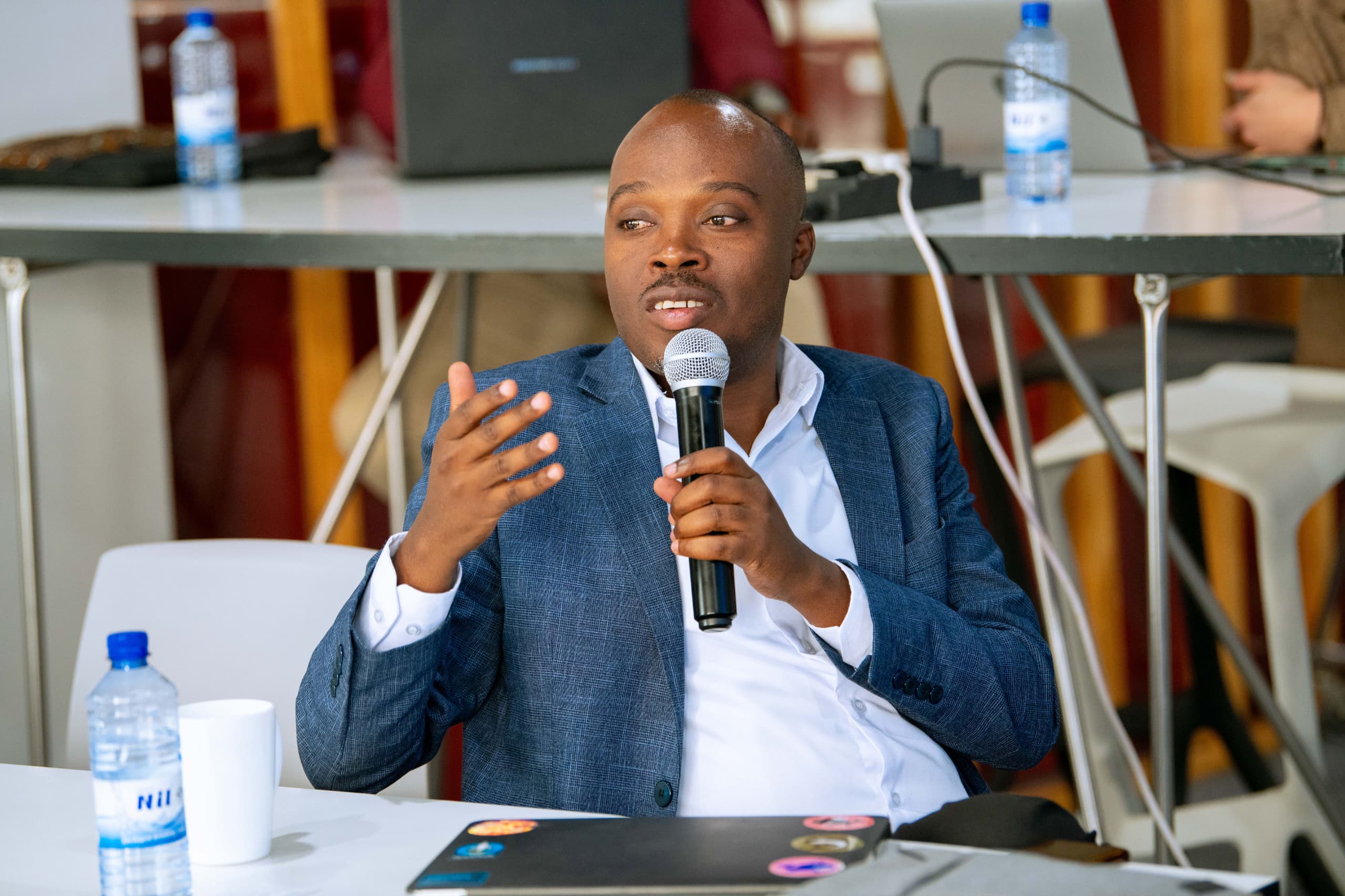
For him, AI isn’t just a shiny new tool, it’s something that should solve real problems. He talks about using AI to help farmers predict crop diseases, or bringing early health diagnoses to remote clinics. These aren’t high-tech dreams, they’re human needs.
“Trust begins with transparency, accessibility, and participation,” he adds. If everyday people understand how AI works in their lives; in their language, with visible benefits; that trust can grow.
And that’s where ethics comes in.
Albert Mutesa, Secretary-General of the Rwanda National Commission for UNESCO (CNRU), emphasized the importance of responsible AI development aligned with Rwanda’s national goals. He highlighted the need for robust AI infrastructure, inclusive education systems, and tailored national strategies to unlock AI’s potential. Mutesa noted that bridging governance gaps and ensuring AI technologies are accessible and inclusive is crucial for benefiting every segment of society.
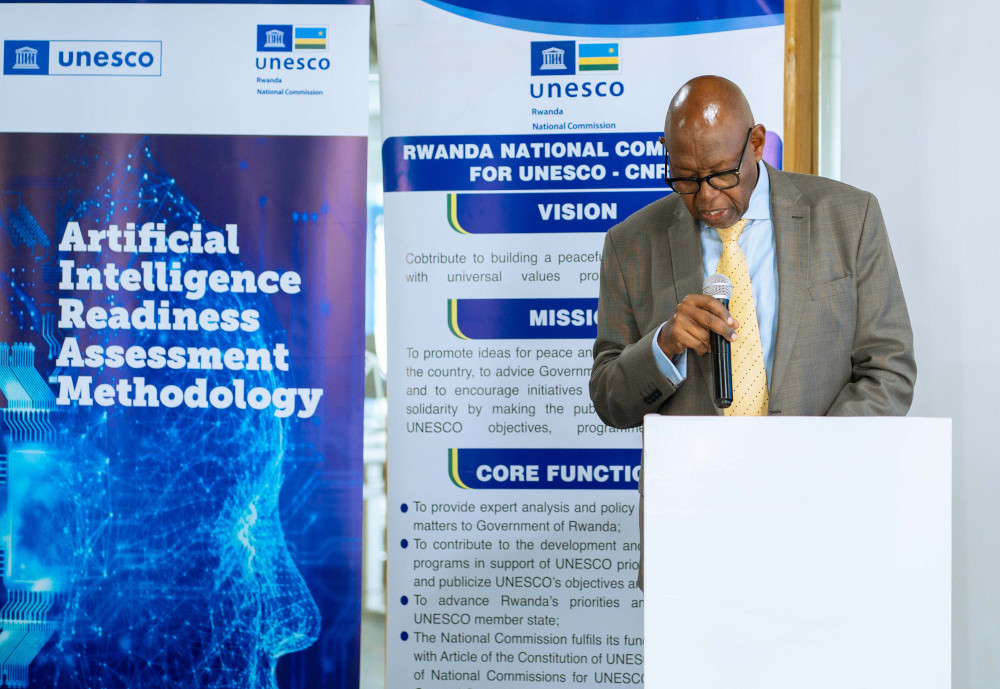
These aren’t just ideas floating in reports. Rwanda is already making moves. One example? It recently launched training programs for legal professionals focused on data protection and AI in justice. It’s not just about laws, it’s about helping those on the ground understand and respond to the ethical challenges these new technologies bring.
This hands-on, people-focused model is what makes Rwanda’s AI journey so promising. The RAM findings and UNESCO’s recommendations are guiding next steps, but they’re not the end of the conversation. They’re a spark.
Now, with clear-eyed assessments, strong partnerships, and a growing pool of local expertise, Rwanda is laying the groundwork for something bigger than digital transformation. It’s showing how technology can be steered by values — not just speed. And how a small country, with the right mindset, can help shape global conversations on responsible and inclusive AI.
The journey is still young. But the direction is right. And that makes all the difference.

Related Articles
Strengthening Rwanda’s SMEs for Circular Food Systems: Embedding Circularity Beyond Project Implementation for Long-Term Transformation
As Rwanda advances its circular economy ambitions, small and medium-sized enterprises (SMEs)...
Powering Food, Restoring Land: How Renewable Energy and Regenerative Agriculture Are Transforming Rwanda’s Farms
Across Rwanda’s rolling hills, a quiet revolution is underway. It begins in...
Late February Weather Alert: Heavy and Above-Average Rainfall Forecast Across Rwanda
The Ministry in charge of Disaster Management (MINEMA) has issued a weather...
GBOX Launches AI Literacy Initiative to Support Rwanda’s Digital and Sustainable Development
A new Artificial Intelligence (AI) literacy program has been introduced last week...





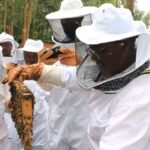
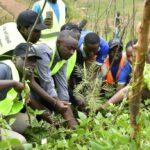


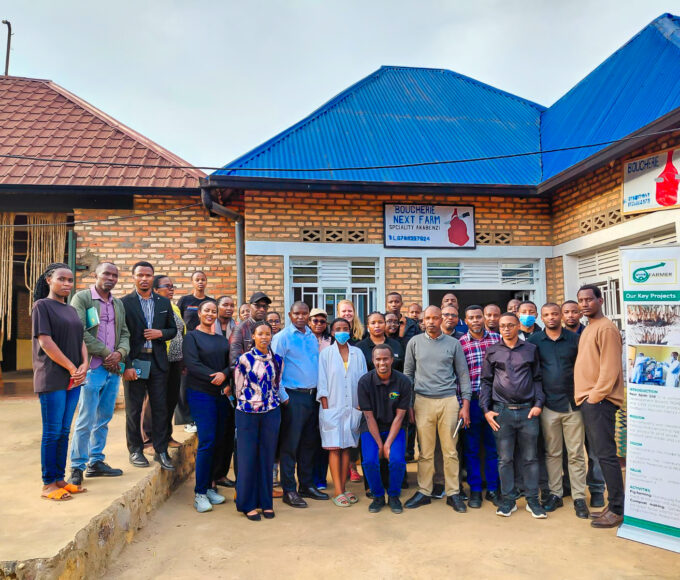


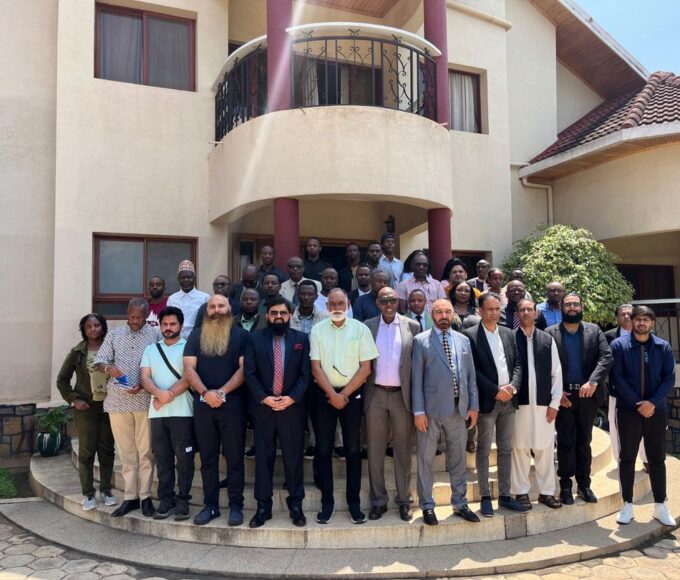
Leave a comment